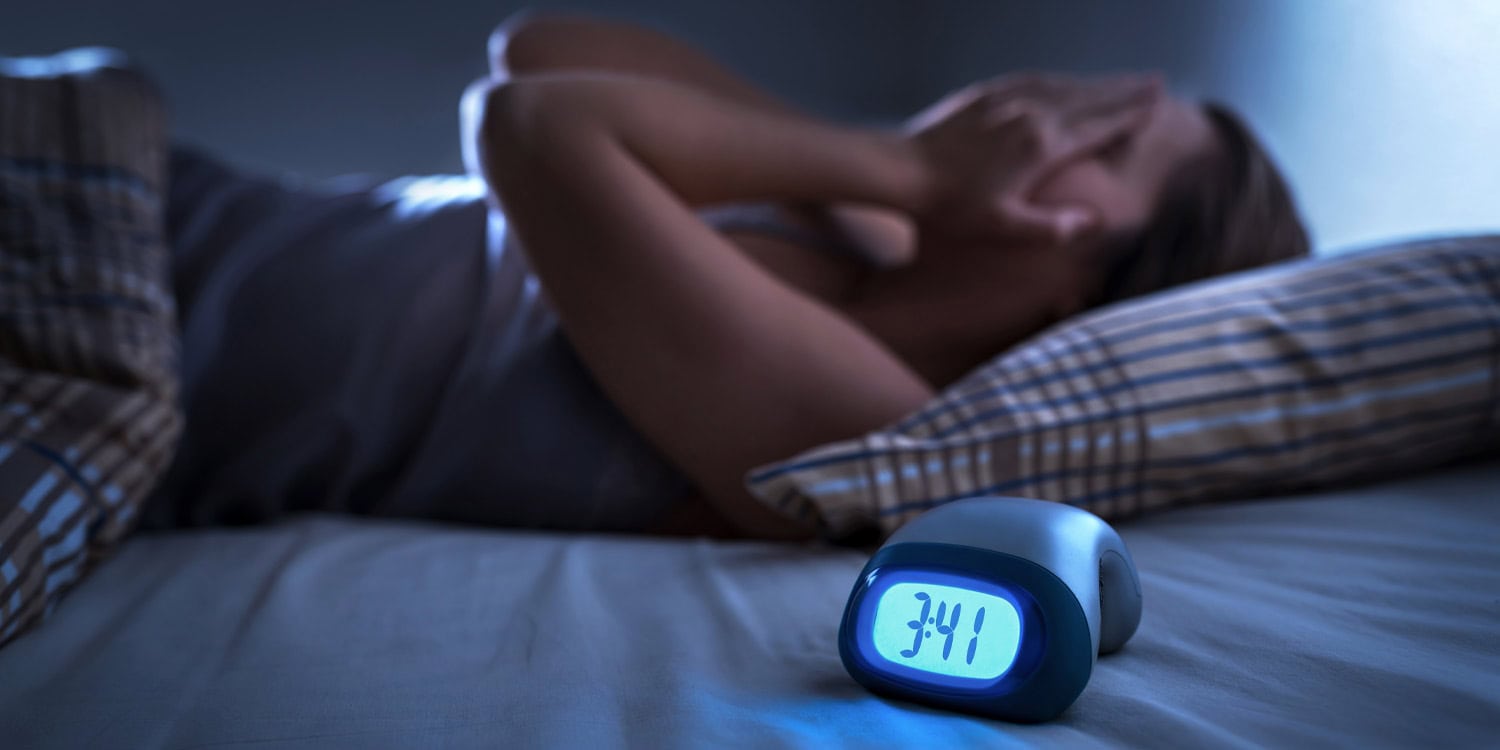A new study published in the European Journal of Neuroscience sheds light on the relationship between being an evening person and experiencing longer delays in falling asleep. The study confirmed that individuals who are naturally inclined to stay up late take more time to fall asleep compared to morning types. Individuals with a history of depression showed even longer delays in falling asleep if they identified as evening types, potentially increasing their risk for future depressive episodes.
Previous research has consistently linked eveningness, the natural tendency to stay awake later, with poorer sleep quality. Evening types report more trouble falling asleep, shorter sleep durations, and waking up more often during the night. However, many of these findings rely on self-reported data, which might not always reflect actual sleep patterns.
The research team wanted to assess whether these sleep disturbances could be confirmed with objective measurements using an actigraph, which tracks sleep by measuring movements. They also explored whether rumination, or repetitive thinking before sleep, could explain these sleep difficulties, and whether having a history of depression made these issues worse.
“The biological clock, or otherwise a person’s circadian rhythm, plays a crucial role in several bodily processes, including sleep-wake cycles but also possibly mood. Maintaining a healthy clock function is a foundational/basic process that is often neglected in psychology. I want to know more about how the circadian rhythms affect psychological processes, because we know so little,” said study author Niki Antypa, an associate professor of clinical psychology at Leiden University.
The study included 88 Dutch-speaking participants, mostly women (87.5%), with an average age of around 21. Participants were selected based on their chronotype, which refers to whether they were naturally inclined to be morning or evening types. Intermediate types were excluded from the study, leaving 53 evening types and 35 morning types. Importantly, the researchers also noted whether participants had a history of depression.
To track sleep patterns, participants wore an actigraph for seven days, which provided objective data on how long it took them to fall asleep, how much time they spent awake after initially falling asleep, and their total sleep duration. Additionally, participants kept a sleep diary each morning, where they recorded similar sleep information based on their own perceptions.
The researchers also wanted to investigate whether pre-sleep rumination, or the tendency to think repetitively before bed, might explain any differences in sleep between the two groups. To measure this, participants completed a questionnaire that asked about their rumination levels during the week of the study.
The study found that evening types took significantly longer to fall asleep than morning types, a pattern confirmed by both self-reported data and actigraphy. On average, evening types took about 21 minutes to fall asleep according to the actigraph, compared to just 14 minutes for morning types. The same difference was observed in participants’ self-reports, with evening types reporting longer delays in falling asleep than morning types. These findings suggest that evening types experience real, measurable difficulties with sleep onset, rather than simply perceiving their sleep as more disrupted.
“Our study is among the first to show that the disturbances in sleep often reported by evening types can be observed using objective data (actigraphy watch),” Antypa told PsyPost. “We see a distinct pattern: evening types take longer to fall asleep and this is found both in self report (subjective data) and using an actigraph (objective data).”
However, contrary to what the researchers expected, pre-sleep rumination did not explain why evening types took longer to fall asleep. While higher rumination levels were associated with longer delays in falling asleep, they did not differ significantly between evening and morning types. This suggests that other factors, beyond pre-sleep rumination, might be responsible for the longer sleep onset seen in evening types.
“We measured rumination retrospectively, meaning that we asked participants if they had negative thoughts before going to sleep the week before,” Antypa noted. “This can be assessed better in future research by assessing negative thoughts before sleep through an app in real time.”
One of the most striking findings of the study was that a history of depression made the sleep difficulties of evening types even worse. Evening types with a history of depression reported much longer delays in falling asleep than both healthy evening types and morning types. This was true even after accounting for factors like alcohol consumption.
“It is astonishing that if participants were an evening type and had depression in the past, it took them much longer to fall asleep compared to the participants who were morning types (with a history of depression) and morning and evening types without a history of depression,” Antypa explained. “So somehow, if you had a history of depression and you are an evening type, you are more susceptible to taking longer to fall asleep. We know from other research that sleep problems are an important predictor of depressive relapse. So this is quite interesting to see that eveningness might be a factor that maintains this problem of taking longer to fall asleep.”
But the study found no significant differences between evening and morning types in terms of other sleep measures, such as how long they stayed awake during the night or their total sleep time. This suggests that the primary sleep problem faced by evening types is a delayed onset of sleep, rather than frequent awakenings or shortened sleep duration.
While the study focused on evening and morning types, it did not measure other factors that might influence sleep, such as physiological markers of circadian rhythms. Future studies could include these measures to provide a more comprehensive understanding of the relationship between chronotype and sleep.
“The biological clock plays an important role in processes regulating sleep but also depression,” Antypa said. “We need to understand this role better. We know that light affects the biological clock. Light therapy works for most depressed people even if they don’t have seasonal depression. We don’t really know how or why light therapy works, so I plan to do more research on this.”
“I want to say that people should not immediately worry if they read this and they are an evening type. Being an evening type per se does not make you vulnerable, it is probably a range of factors, habits and traits that some evening types have (and we researchers need to uncover all those) that could make them more vulnerable to poor sleep and depression. ”
The study, “Chronotype, sleep quality, depression and pre-sleep rumination: A diary and actigraphy study,” was authored by Efthymia Lamprou, Liia M. M. Kivelä, Jos H. T. Rohling, Johanna H. Meijer, Willem van der Does, and Niki Antypa.




